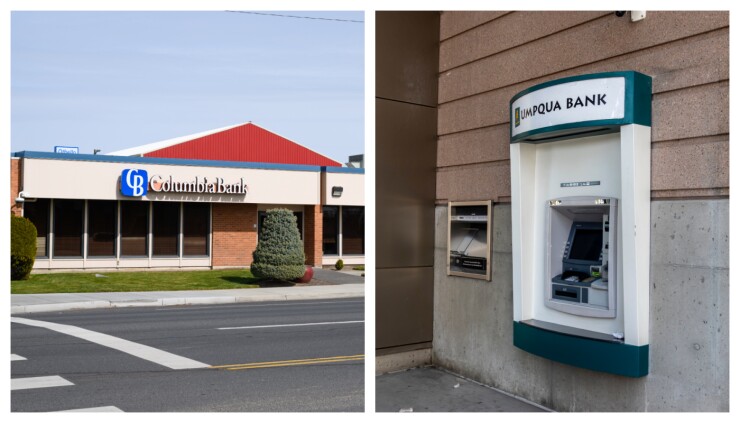More than a year after announcing their intention to form a powerhouse bank in the Pacific Northwest, Columbia Banking System and Umpqua Holdings received approval to merge from the Federal Reserve.
The Fed said its decision, announced Tuesday, is conditioned on Columbia receiving all other regulatory approvals necessary. The deal is still pending approval by the Federal Deposit Insurance Corp.
Still, the go-ahead nod from the central bank is the latest in a series of approvals of billion-dollar bank mergers. A renewed effort by regulators to scrutinize deals left the fate of many tie-ups, including the Columbia-Umpqua deal, unknown during the latter part of 2021
U.S. Bancorp announced last week that it had received full regulatory approval for

The Fed examined 28 banking markets where Columbia and Umpqua directly compete. It found that the merger wouldn't have a "significantly adverse effect" on those markets, given that Columbia has agreed to divest 10 branches in certain areas,
Once complete, the deal would boost Columbia's assets close to $52 million, with a deposit base around $44 million. There is one element that sets the deal apart from others like it: Columbia, which is the acquirer, has about $20.4 billion in assets, fewer than Umpqua's $31.5 billion.
The combined entity would have a branch network that stretches across five states: Washington, Oregon, California, Idaho and Nevada.
When the banks agreed on the deal last fall, they said they expected it to close in the middle of 2022. In July, executives estimated the closing would come in the third quarter.
"The delay in the close has enabled us to get the social and cultural elements more defined and in front of folks," Columbia CEO Clint Stein said last week after the bank reported third-quarter earnings. "That's going to be a huge benefit as we do get to the close."
Columbia executives said last week that the bank's






